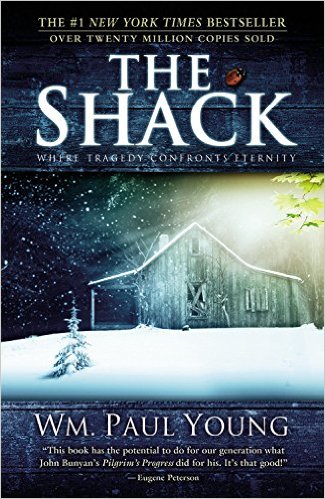CCM: In Matthew, Jesus says, “Unless you become like little children…”
WPY: Exactly.
CCM: And yet, The Shack, was, as we know, originally written for children—for childlike faiths. With the release of the film, the second wave of this story coming back to our attention, there will be more reaction from staunch religious-type folk…
WPY: My people! …they are. Modern evangelical fundamentalists, those are my people. That’s what I grew up in, so be careful how you talk about them [laughs]. They’re the ones who won’t read the book and will hate it.
If you come from any religious fundamentalism, you know that we’re sort-of addicted to being right, but we’re really scared. Afraid. When somebody’s upset with what I’ve written or what they’ve heard that I’ve written, or about the movie or whatever, and they already have their preconceived ideas… They’re not coming to tell me about who I am, they’re coming to tell me—in the only language they know—about who they are, and what matters to them. I don’t want what is precious to them to be less precious by the time we’re done with our conversation. That’s not my place.
But at the same time, how many of us have actually changed when everything is going smoothly and really well? We tend to create our prisons out of our comfort, our certainty, and our prejudices. We need to be challenged. I love that [The Shack] has stirred up conversation. It has stirred it up in family systems—not only families of faith, but biological families—where suddenly there’s a way to talk about stuff or ask questions that are authentic and real. All of us change. None of us believe everything today that we believed fifteen years ago, and the same is going to be true fifteen years from now. We’ve got to give some space for that kind of transition.
In the final analysis, God is way bigger than a book, a movie, or a song, and there’s a point where we trust the Holy Spirit and stop trying to play the Holy Spirit. You know?
I get it. I understand. You bring your pair of glasses that you’ve been raised with to read something and you can actually read the opposite of what it says, because you’re looking for what you think it says. And that’s happened. People read page 184, which in most editions [of The Shack] has this conversation between Mack and Jesus and Mack says, “Do all roads lead to Papa?” I put that in there specifically so that nobody would think that I think that all roads lead to God. Jesus laughs and says, “No, most roads don’t lead anywhere, but I’ll go down any road to find you.” Which is exactly the Good Shepherd, right? The one who leaves the 99 to go find the one.

 Listen Live
Listen Live

I have not read the book, nor will I, and I most certainly will not watch a movie based on this man’s imagination. Hank Hannegraff summed it up perfectly.
The book was so filled with blasphemy that I threw it away. I will never watch the movie.
We all like to live in a diorama picturing God and our personal spiritual beliefs as we have been taught and what we have chosen to learn through our life’s experiences! This book and movie will challenge an individual to open their minds eye and theoretically examine the possibility of God as portrayed thru the experience portrayed in Mackenzie’s life! I am closer to Our Heavenly Father because of it! Movie is very well cast and portrayed!